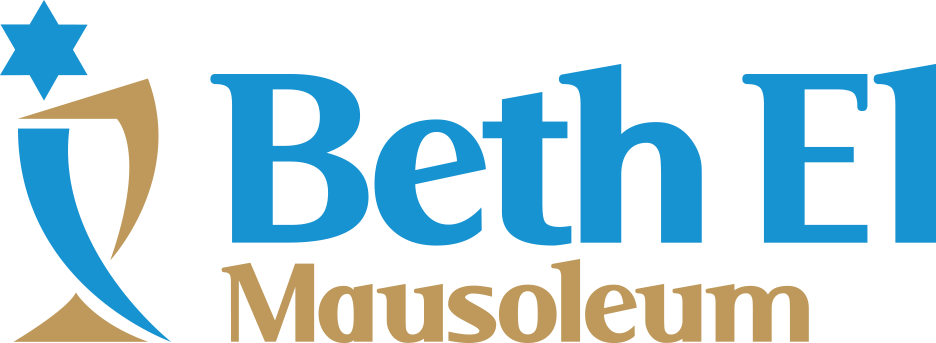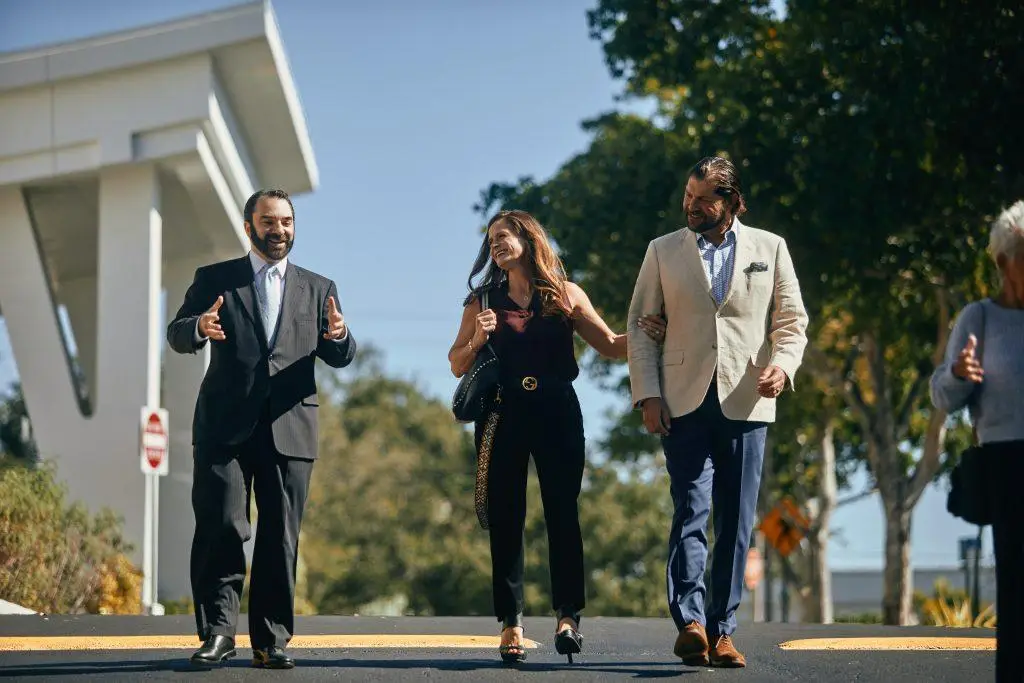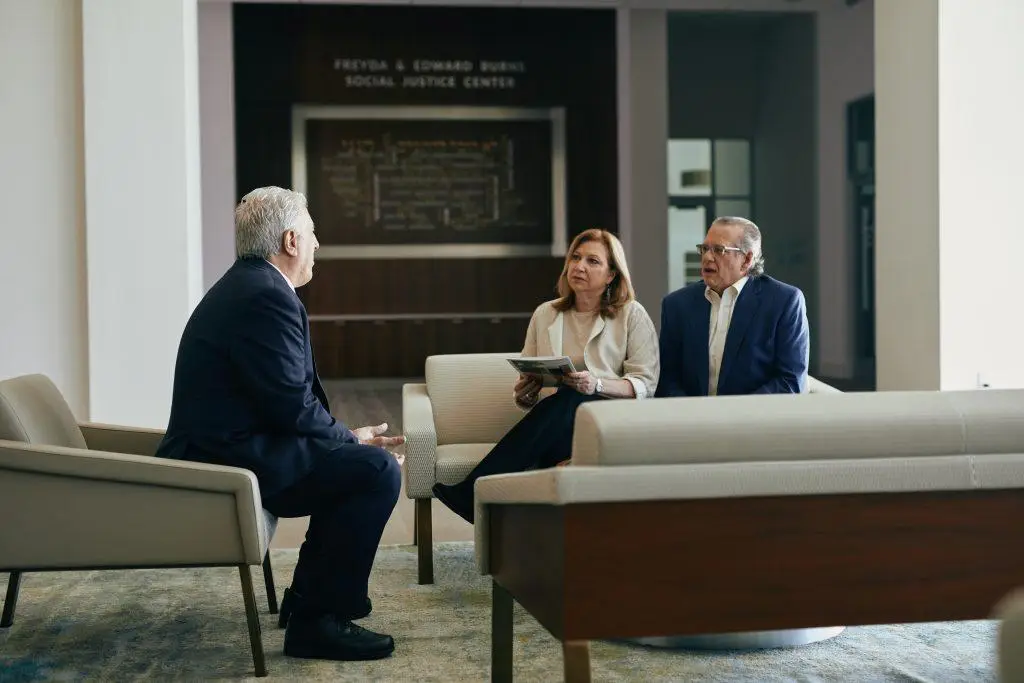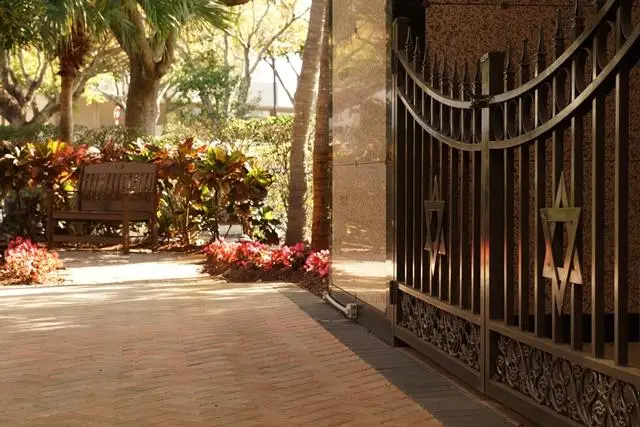Jewish traditions are rich in honoring and memorializing those who have passed away. Learn about those traditions and how we are connected to them this High Holy Day season.
The process of honoring our departed loved ones begins at the time of death with the funeral or memorial service, followed by the Shiva memorial period. The unveiling is held prior to the one-year anniversary of the death. Additionally, we honor those who have passed on their annual Yahrzeit observance. Yizkor services are recited four times a year during holiday synagogue services which include Yom Kippur, Sukkot, Passover and Shavuot.
Here at the Beth El Mausoleum we are deeply connected to these traditions. We provide meaningful funeral and memorial services. We also participate in other memorial services connected to the High Holy Days. The ten-day period of the Jewish New Year, between Rosh HaShanah and Yom Kippur, known as the Days of Awe, is a time for serious introspection, a time to consider the sins of the previous year and repent before Yom Kippur.
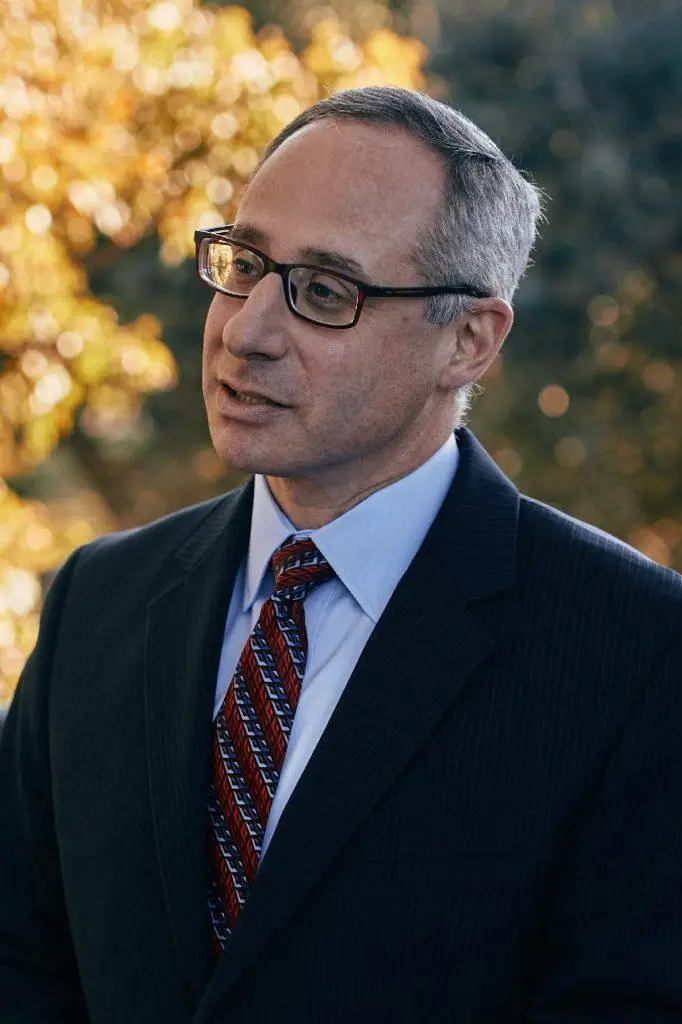
“Reflecting on memory and the fragility of life represents a significant element of the spiritual process of the High Holy Days. Our annual confrontation with our mortality helps us to clarify what is truly important as we recalibrate our moral and spiritual compass,” says Temple Beth El of Boca Raton, Rabbi Dan Levin.
2021 High Holy Day Kever Avot Services Conducted by Temple Beth El of Boca Raton
As the Jewish High Holy Days draw near, during the Hebrew month of Elul one of many traditions practiced is to visit the graves of our parents and loved ones by attending Kever Avot Services (Cemetery Services) at a cemetery or mausoleum.
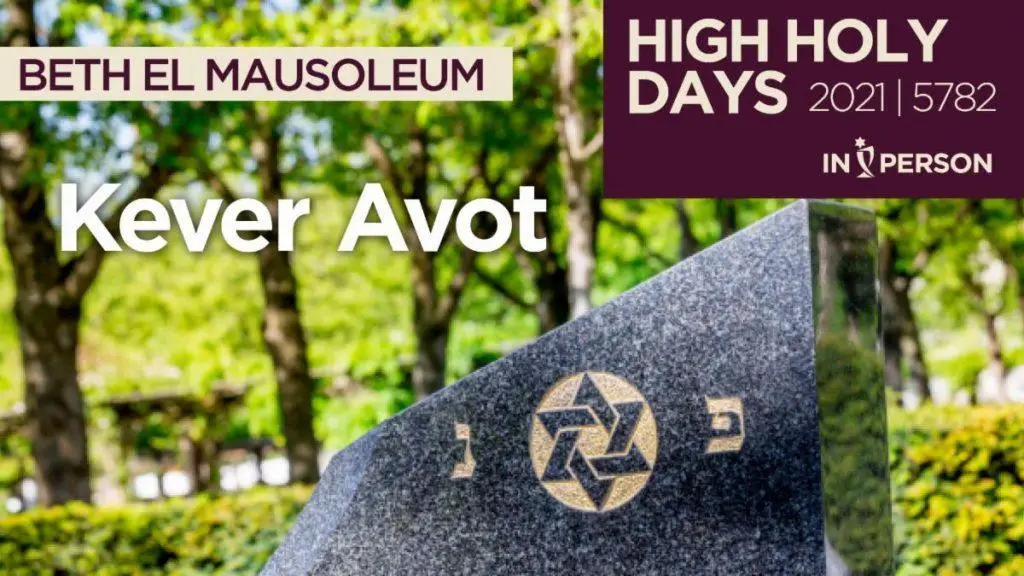
During this time, many people desire a connection with community and the opportunity to pray together. Just as synagogues around the country and the world hold do, services are also held here in Palm Beach County. Temple Beth El of Boca Raton annually holds these communal Kever Avot services concurrently at the Beth El Mausoleum which is located on their sacred grounds, as well as at Eternal Light Memorial Gardens in Boynton Beach, Florida. This year, Kever Avot services will be held at both locations on Sunday, September 12, 2021 at 12:45 pm, and all are welcome to attend.
Rabbi Daniel Levin explains, “The tradition of Kever Avot – The Graves of our Parents – guides us during the days between Rosh HaShanah and Yom Kippur to honor the memory of our loved ones by attending to the maintenance of cemeteries and individual graves and markers. At the same time, the visits inspire not simply the preservation of memory, but also an opportunity to reflect on our own life’s journey. In visiting the holy spaces where our loved ones were laid to rest, we ask ourselves if the life choices we made in the last year truly honored the legacy and values of those we’ve lost.”
Steeped in our history, this touching opportunity to honor those who came before us at a physical space, allows us to recall cherished memories of those who have passed on. The theme of the prayers is peaceful eternal rest for the departed. Kaddish, the mourner’s prayer, is recited during this touching service. This ritual can bring to mind a wealth of memories and emotions, as we honor the memory of our deceased ancestors.
Yom Kippur Yizkor Service
According to Rabbi Levin, “The Yizkor service on Yom Kippur also inspires the same spiritual work. Through the power of memory, we gather our loved ones together in our hearts and minds. In those precious minutes of memory, we recall the higher and holier purposes for which our loved ones lived, and renew in ourselves a commitment to honor their memories by advancing the values and principles they bequeath to us.”
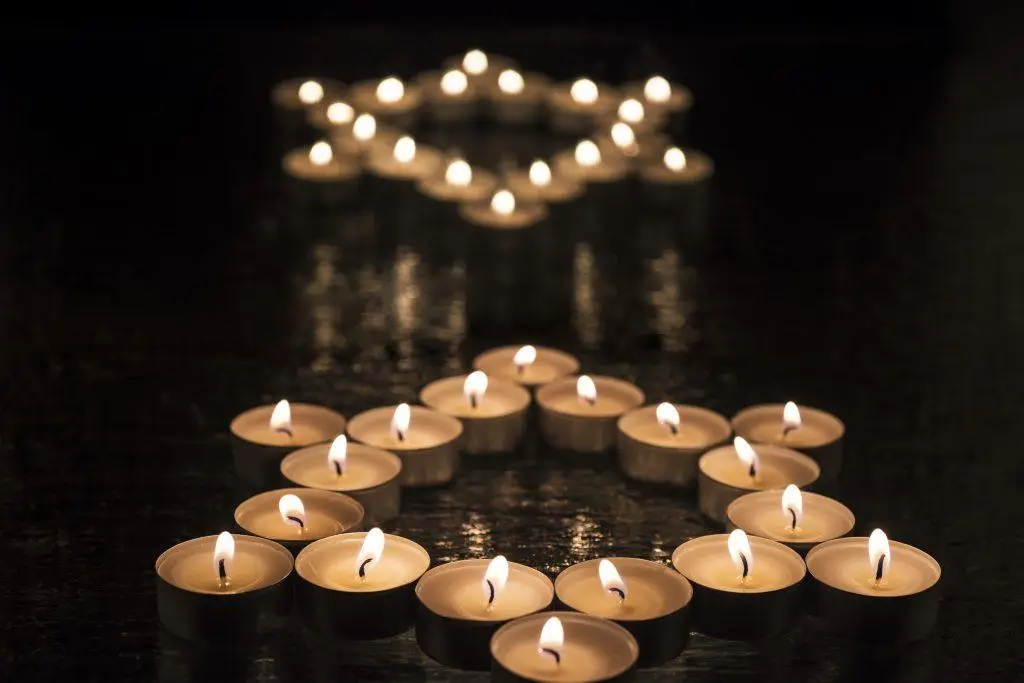
On September 16, 2021 during the final portion of the Yom Kippur (Day of Atonement) afternoon services at synagogues around the world, Yizkor will be recited. Yizkor in Hebrew, means “Remember.” This prayer is to honor the deceased no matter how long ago the person died. In this prayer, we implore God to remember the souls of our relatives and friends that have passed on. This allows us an opportunity to sustain the bond we have shared with the loved ones whom we have lost.
According to My Jewish Learning “Originally, Yizkor was recited only on Yom Kippur. Its primary purpose was to honor the deceased by committing to giving tzedakah [charity] in their memory, on the theory that the good deeds of the survivors elevate the souls of the departed. It also enhanced the chances for personal atonement by doing a deed of lovingkindness.” Tradition holds that acts of tzedakah are key to our observance of Yom Kippur. At home during these times, it is also customary to kindle 24-hour Yahrzeit candles in remembrance of our loved ones. Lighting the candle presents a time to recall the deceased as well as to spend some time in introspection.
Additional Ideas for Memorializing Loved Ones During the High Holy Days
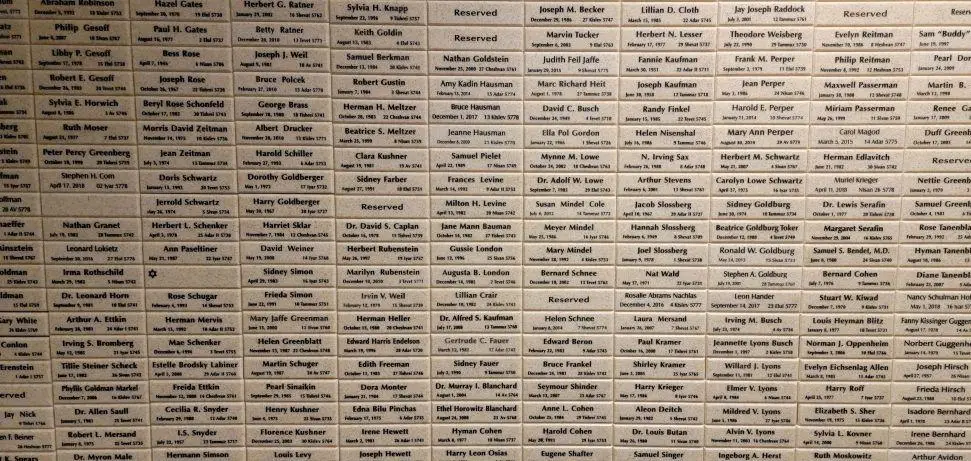
A long-lasting means of memorializing a loved one, especially around the time when one of the four Yizkor services of the year is held, is to dedicate a Yahrzeit plaque to remember a loved one or dear friend. Doing so ensures that the yahrzeit will be observed in perpetuity. Your loved one will forever be inscribed on the beautiful memorial wall located inside the synagogue.
Another interesting custom that some people may want to follow, according to ReformJudaism.org, is that “some Jewish people wear white on Yom Kippur, because it is a symbol of purity. Yom Kippur is a day when we undertake a spiritual cleansing, so it is an appropriate color for the occasion. Others interpret white as representative of the white shroud in which some Jews are buried, symbolizing our mortality and reminding us of the need for humanity and repentance.”
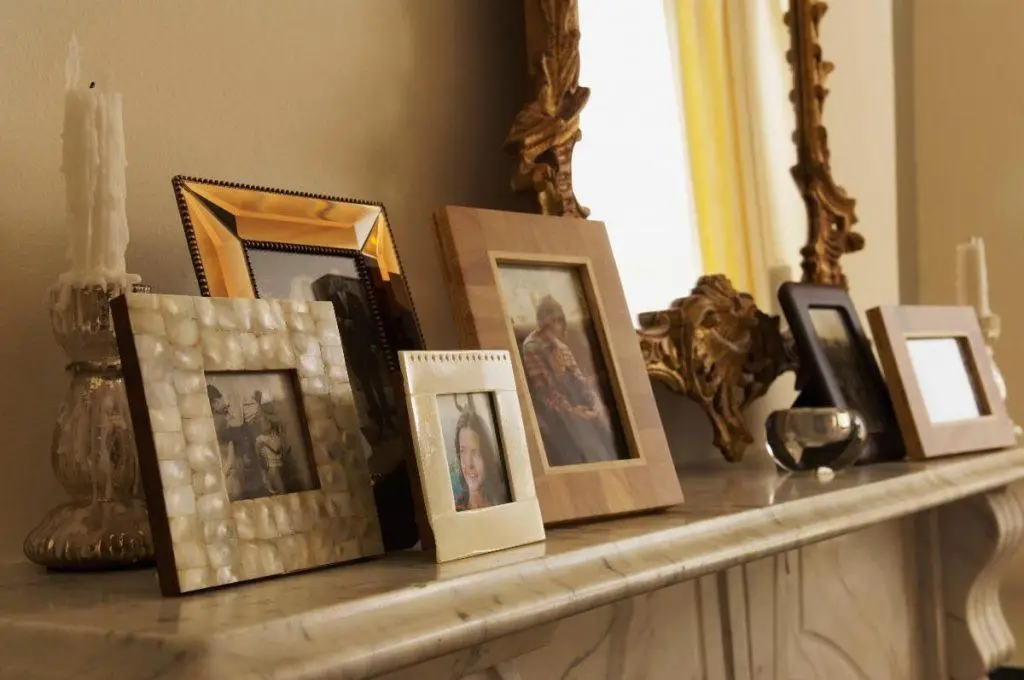
Honoring the memory of our loved ones can extend to times when we gather together with family for Jewish Holiday meals during Rosh HaShanah or Erev Yom Kippur or for break-fast. We can place photo albums or framed photos of those who have passed away where our guests congregate in our home during that time. It is heartwarming to spend time looking through them and reminiscing about happier days when they were with us. This is an excellent time to share these memories with those who may not have known their ancestors.
It is also a lovely touch to try to continue the traditions that they created. We can do that by using any cherished special linens, china, or glassware that belonged to them to add a special touch to our Jewish holiday meals, preparing dishes based on their special recipes. We can keep their memory alive with sensory experiences as we enjoy the same tastes we remember from the past.
All Are Welcome to Join Us
So, as Jewish people worldwide mark the approaching High Holy Days, the Beth El Mausoleum in Boca Raton, Florida welcomes everyone to attend the Kever Avot services conducted by Temple Beth El clergy. The synagogue also invites all to participate in Rosh HaShanah and Yom Kippur High Holy Day services with us.
